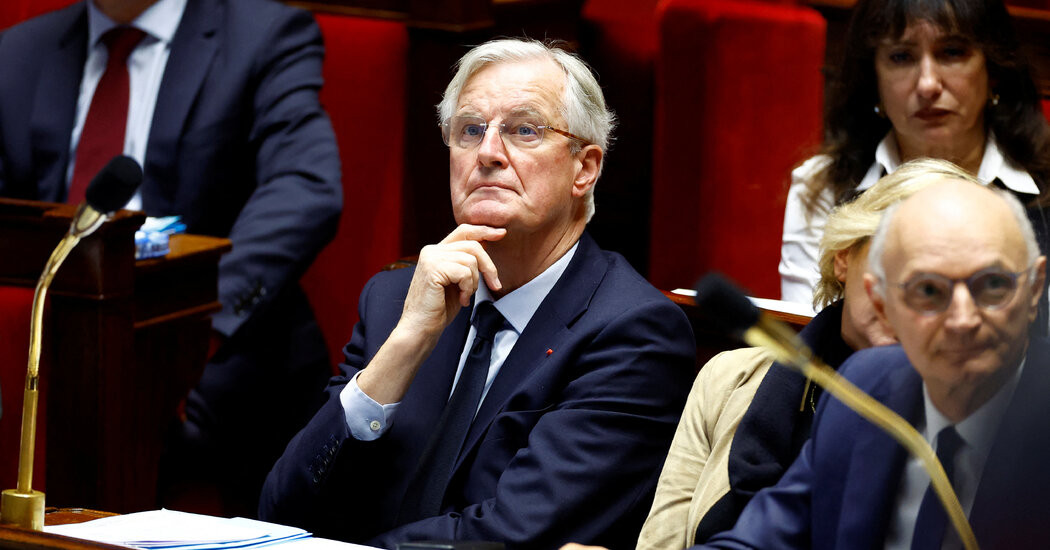
Prime Minister Michel Barnier pushed a budget bill through the lower house of Parliament without a vote. A no-confidence vote could topple the government.
Prime Minister Michel Barnier of France pushed a budget bill through the lower house of Parliament without a vote on Monday — a risky move that sets the stage for a no-confidence motion this week that could topple the government.
The prospect of a government collapse — and of a failure to pass a budget — has rattled financial markets, sharply increased France’s borrowing costs, and further deepened the uncertainty that has gripped the country since snap elections last summer yielded no clear parliamentary majority.
Mr. Barnier’s move exposes his government to no-confidence motions — which both French left-wing parties and Marine Le Pen’s far-right National Rally party quickly said they would file, with a vote expected as early as Wednesday.
The fate of Mr. Barnier and of his cabinet, both appointed by President Emmanuel Macron just three months ago, now rests in their hands.
In explaining his decision, Mr. Barnier told lawmakers: “I don’t think the French would forgive us for putting individual interests ahead of the nation’s future.”
Mr. Macron will remain as president even if Mr. Barnier and his cabinet fall. But Mr. Macron will need to appoint a new prime minister.



